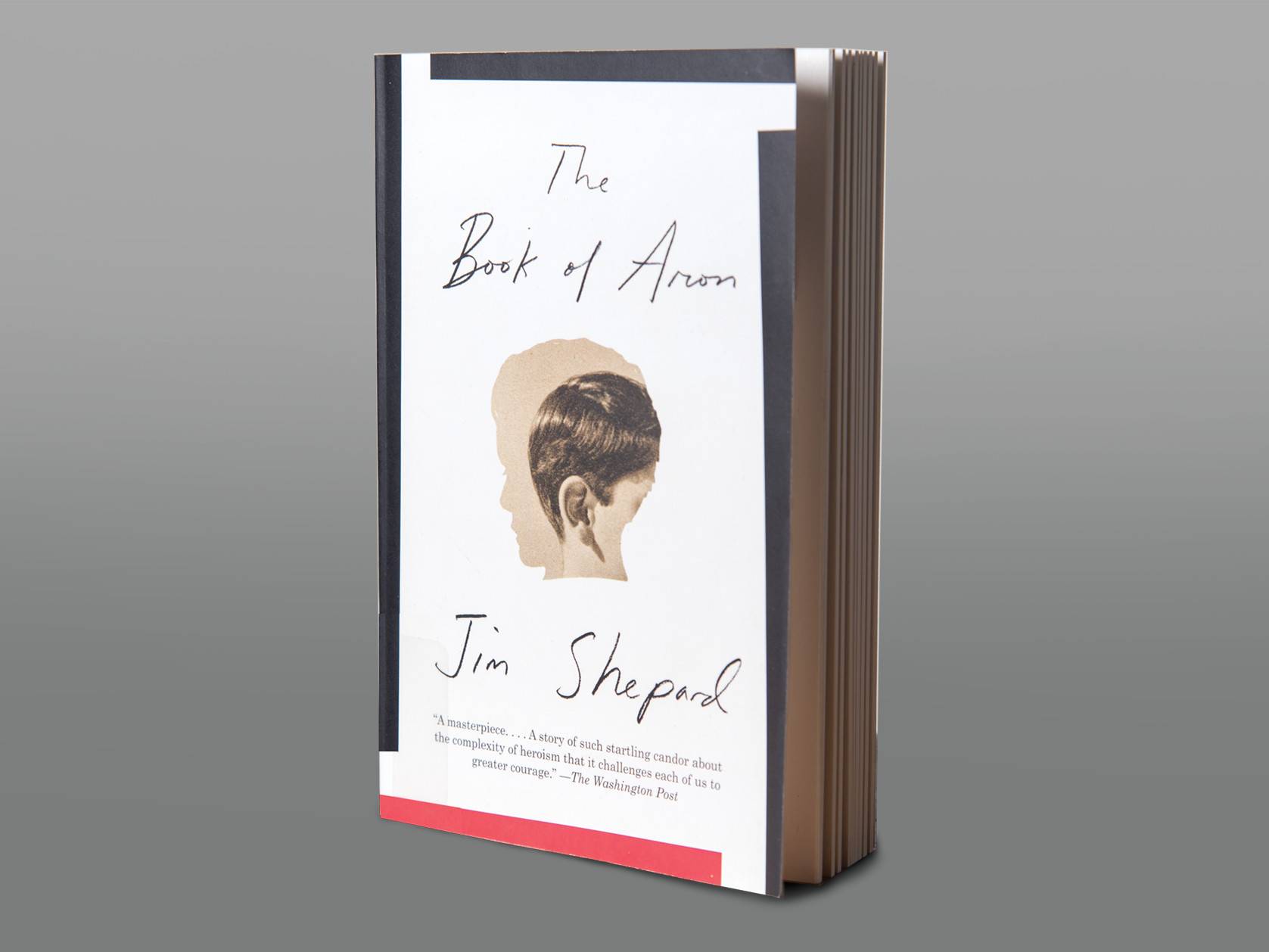Legacy of Texas writers L.D. and LaVerne Clark

Legacy of Texas writers L.D. and Laverne Clark lives on through literary endowment
by Anastasia Cisneros-Lunsford
Holocaust novel wins first $25,000 Clark Fiction Prize
A novel describing the horror of the Holocaust through the eyes of a child has won the first L.D. and LaVerne Harrell Clark Fiction Prize from Texas State University.
The Book of Aron (Knopf, 2015) is a masterfully written book by Jim Shepard, a National Book Award finalist, says Doug Dorst, director of the Creative Writing program at Texas State and director of the Clark Fiction Prize competition. “Jim Shepard is a writer with a remarkable imagination, a remarkable gift for empathy, and a writer who handles the comedic and the tragic with equal skill,” Dorst says. Shepard, the author of seven novels, accepted his prize at Texas State on March 8. He is a professor of creative writing and film at Williams College in Massachusetts.
Tom Grimes, Texas State English professor, says he nominated Shepard’s book because the author managed to do the next-to-impossible. “He wrote a contemporary novel capable of illuminating the horror of the Holocaust through the often comic perspective of a child,” Grimes says. “It’s an incredible, and incredibly moving, book.”
With this first honor, the Clark Fiction Prize is poised to be one of the most prestigious fiction prizes in the country. The $25,000 prize was made possible by the talents and generous gifts of L.D. and LaVerne Harrell Clark, writers who forged a longtime relationship with the university to create the literary endowment that bears their names.
The Clarks, both native Texans, met while taking creative writing classes at Columbia University. They married in 1951 and moved to Arizona after L.D. received his doctorate from Columbia. L.D., a well-known D.H. Lawrence scholar, retired as professor emeritus of English at the University of Arizona after 33 years. A novelist, folklorist, and photographer, LaVerne served as the first director of the University of Arizona Poetry Center, where her 12,000-portrait collection of well-known poets from the 1960s and 1970s is housed.
After retiring to Smithville, the Clarks were invited to become members of the Texas Institute of Letters. That’s when they met Dr. Mark Busby, a Texas State English professor and former director of the Center for the Study of the Southwest. “Somewhere along the way, LaVerne began to research and write about folklore,” Busby says.
One of LaVerne’s earliest works, They Sang for Horses, is a collection of Navajo and Apache horse mythology, which won the University of Chicago Folklore Prize in 1967 and was recognized by the Smithsonian Institution as a classic in Native American studies. She later wrote Keepers of the Earth, which earned the Best First Novel Award in 1996 from the Western Writers of America.
“L.D. grew up in Gainesville and he had something of a mixed relationship with Texas in the sense that his grandfather and several others in the area were sympathetic to the Union,” Busby explains. “Forty-plus were hanged by the Confederacy and some were L.D.’s relatives. Early on he wrote a nonfiction piece about the event, A Bright Tragic Thing: A Tale of Civil War Texas, and later he fictionalized it and wrote a novel about it.
“They wrote about their interest in the Southwest and Texas,” Busby says. “Even though it was later in their lives that they became committed fiction writers, they came back here to Texas and this was their life — their life as writers. If there was a literary gathering in any small town or big town in Texas, they were going to be there and they’d have a booth set up to sell their books.”
Each year, the Clark Endowment funds a graduate student of Texas State’s prestigious Master of Fine Arts program in creative writing who lives and works at the Smithville house, as well as numerous scholarships that attract talented writers to the program.
“We see the Clark Fiction Prize on the national literary landscape, and we do hope it brings attention to the university, the English department, and the M.F.A. program,” Dorst says.
In 2012 at a university event honoring the Clark Endowment, L.D. spoke with Dr. Daniel Lochman, professor and chair of the Department of English, about the legacy he wanted for the Clark Fiction Prize. LaVerne died in 2008. L.D. died in 2014, at age 91.
“The Clark Prize fulfills the wish of the Clarks and recalls their accomplishments and generosity,” Lochman says. “The prize is sure to catch the attention of writers and readers of fiction from across the nation. We are honored to have the opportunity to manage the selection process of the prize and to celebrate it each year with the achievement of a leading writer of fiction.”